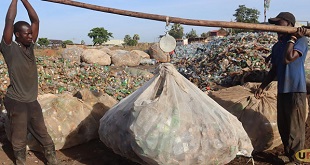U.S. President’s eight day trip around Africa fails to say much about what America wants and what his hosts gained

What does Africa have that America could want? It seems that is a question not even Barack Obama, on his first extended trip to the continent since becoming American president five years ago, can answer.Even before he set off on June 26 for the three nation tour that ended on July 3 in Tanzania, the Obama White House was determined to emphasise the need for America to ‘engage’ with Africa. But the reasons for the engagement were curiously not made clear. Estimated to have cost the American taxpayer between US $60 and 100 million, the trip was vaguely billed as a “great bang for our buck” and saw the President and his family; including his mother-in-law and niece, visiting Senegal, South Africa, and Tanzania
An assessment of the trip, which can be described as lacking in meat, is that Senegal, the large party’s West African host was effectively the starter, South Africa the entrée or main meal, and East Africa’s Tanzania the dessert.
While Obama was perfectly complimentary, spoke with politicians and met with business leaders in all three countries, most of his major announcements were saved for Cape Town, South Africa, where he delivered what has been billed as his keynote speech.
These major announcements included an invitation to sub-Saharan African leaders to a summit in the U.S. next year and the allocation of US$7 billion for a project dubbed ‘Power Africa’ that intends to double the electricity generation on the continent and connect 20 million new users.
Although it sounds substantial, the figure is meant to be shared between six countries, namely Kenya, Ghana, Ethiopia, Liberia, Nigeria, and Tanzania over a period of five years. The spread in geography and time dwarfs the figure when compared to Chinese leader Xi Jinping’s pledge of US$20 billion during his trip to Africa a few months before Obama. The Chinese money was to fund infrastructure on the continent.
The comparisons are inevitable and reflect the challenge of America’s interaction with Africa. The buzzword of the Obama trip has been ‘catch-up’; implying that the U.S. is lagging behind China in the race for what many see as the opportunity Africa presents.
“The USA would be foolhardy if it did not try to undercut the Dragon,” says Prof. Kasaija Apuuli, a senior lecturer of political science at Makerere University.
China a decade ago was one of the first nations to treat Africa as a possible trade partner rather than a hopeless drain on aid money and America is coming into the game a little later. Now, with the dominant Africa rising narrative, it seems the USA is determined not to get left behind.
Chasing China
American manufacturing, mining, and retail companies such as General Electric and Wal-Mart, have begun setting up on the continent. Obama was accompanied on this trip by 500 business people on his tour of Africa. While no big announcements came of the business meetings held by the group, this is a sure sign that America sees Africa now as China has seen it for the last few years; as ready for business.
Obama said America is ready to invest in and sell to Africa rather than just extracting precious raw materials. Unfortunately, at the South African Chamber of Commerce, Obama offered nothing new apart from his support for the extension of the African Growth and Opportunities Act (AGOA) initiated by Bill Clinton to beyond 2018. This extension however, can only be granted by Congress. He opted to play down Chinese involvement in big projects; mining, oil exploration and refinery, and constructing power dams, roads, and railways.
“Our primary interest when it comes to working with Africa on energy issues has to do with how do we power Africa so that it can be an effective market creating jobs and opportunity,” Obama told a news conference in South Africa according to Reuters, “We also then have somebody to trade with and sell iPods to, and airplanes, and all kinds of good stuff.”
The American ambassador to Uganda, Scott DeLisi, also has a different opinion about perceived competition between China and America.
“I get very disappointed that some of the commentators tried to define this as competition with China. We aren’t defining our relationship with Africa in terms of China, we define our relationship with Africa in terms of our partnerships in Africa and we recognise the tremendous power and potential and energy that this continent has. We hope to be able to build and partner together for a more dynamic future,” he says.
Obama’s narrative appears to have shifted in mid-flight. Just before the commencement of his trip, the stated reasons for Obama’s visit were to talk about democracy, aid, and development.
Grant Harris, the White House Senior Director for African Affairs, said that while China has pursued economic interests, the USA has focused on support for democratic institutions and broad-based economic growth. The choice of itinerary, centering on fumbling but determined emerging democracies; Tanzania, South Africa and Senegal, reinforced this view. It was the old game of American engaging only with countries it has deemed ‘worthy’. It is the same American policy that has led some African leaders to look to the East for support rather than bend to rigid conditions imposed by America’s good governance agenda. China has shown few scruples when dealing with Africa and, possibly as a result, has interests in 50 African nations.
Odd partners
Additionally, even the countries Obama chose to deal with during this trip are not the idealistic democrats dream that the White House would have one believe.
Tanzania, under Kikwete has seen accusations of vote rigging that caused the eruption of protests, South Africa is effectively a one party state whose Presidents’, Jacob Zuma of the ANC, close ties to wealthy South African’s have recently come under scrutiny, and Senegal nearly descended into violence during the last elections won by President Macky Sall. In other words, African countries, like everywhere else, are complex configurations and trying to do business in terms of ‘either you are for or against us’ may hurt America’s interests.
Although Obama attempted to portray American interests as noble and philanthropic when compared to China, that may not be wholly the case, some argue. Critics say Obama’s actions in relation to the continent reveal his interests are mainly in security and expanding American military presence. The American army has an admitted presence in Somalia, Uganda, South Sudan, Niger, Central African Republic, Democratic Republic of Congo, Libya, and Djibouti, which they say is mostly to train troops.
Observers note, however, that it is not a coincidence that Africa is suddenly getting American attention just as US forces begin to gradually withdraw from the Middle East. They suggest that American seeks alternatives to the oil supply from unstable Middle Eastern countries they have relied on for quite a while. President Obama denied this, telling an audience in South Africa that “frankly, we do not need energy from Africa.” But recent finds of vast untapped oil reserves in Africa by Western oil companies could not be more fortuitous.
Conspiracies aside, it is evident that the one thing America is clear about in Africa is security. It believes there is a need to protect its interests even if, for now, its behavior shows a lack of clarity about what those interests are exactly. For Appuli, the Makerere University don, American pursuit of its security interests is a given. He says counter-terrorism is an added incentive for an American military presence on the continent.
“For the Americans, Africa increasingly is becoming important especially as a frontier to fight international terrorism,” he says, “the debate on the location of the Africa Command (AfriCom) on the continent continues to rage,” he continues.
 The Independent Uganda: You get the Truth we Pay the Price
The Independent Uganda: You get the Truth we Pay the Price



